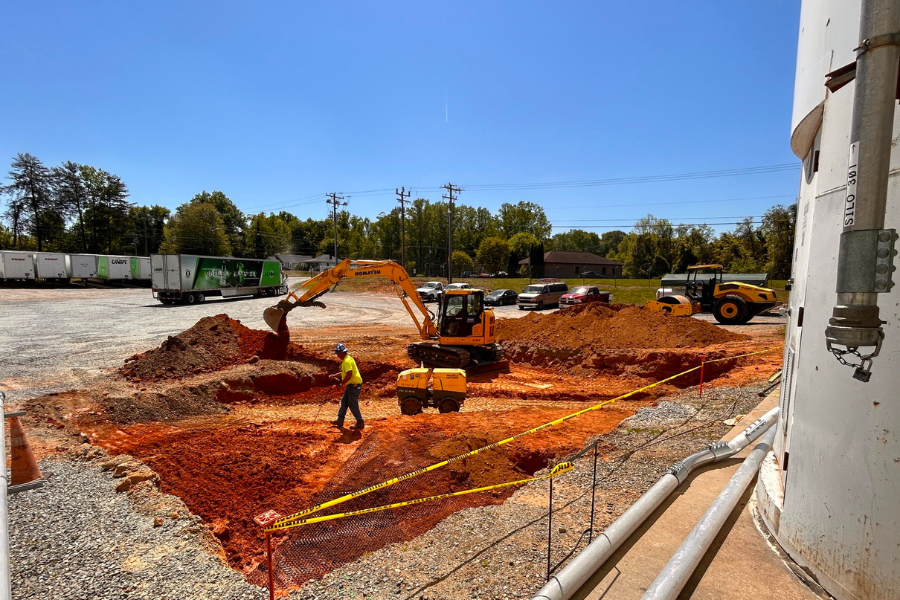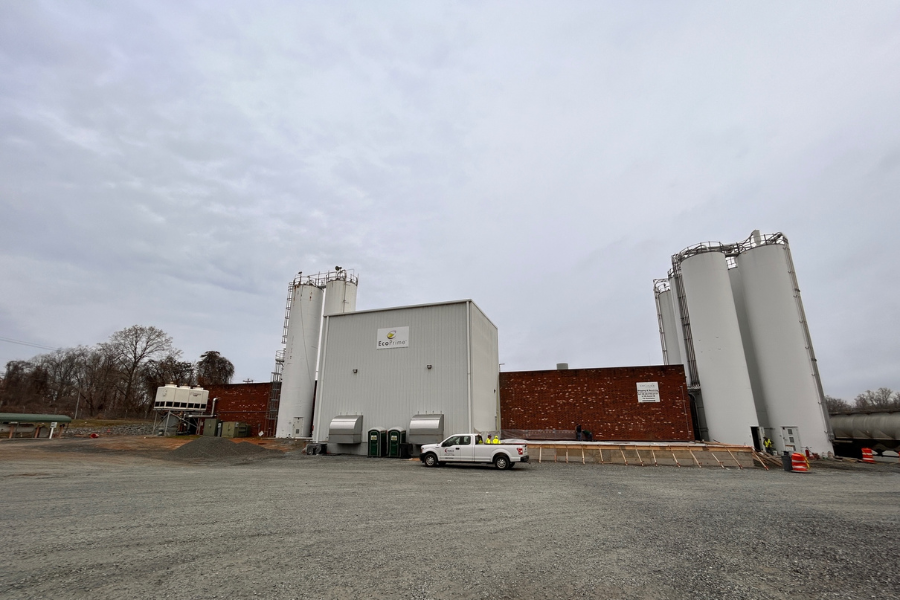
The Envision investments will enable the company to grow its annual HDPE output by 25 to 30 million pounds. | Courtesy of Envision Plastics
Envision Plastics is leaning into demand for PCR and putting millions of dollars into adding another recycled food-grade HDPE and PP processing line at an existing facility.
The expansion at Envision’s Reidsville, N.C. plant gives the company flexibility to switch between producing its HDPE, dubbed “EcoPrime,” and post-consumer PP. The additional production line will increase Envision’s capacity to produce EcoPrime by 50%.
Roberto Fontanillas, vice president and general manager of Envision Plastics, told Plastics Recycling Update that after a decade producing PCR commercially, increasing demand from both long-term and new customers has “gotten to a point where we need more capacity.”
“The other nice thing about the investment is that we have also been going down a path of expanding into fit-for-food-contact polypropylene – we offer six different grades of fit-for-food-contact polypropylene post-consumer resin – so we’re excited to have this new line,” he said, because it’s been engineered to allow the company to switch between products on it.
Building up capacity in North Carolina
The building’s current footprint included the space for a second line, but Fontanillas said there is also a small extension planned for silos and the support equipment needed for the additional capacity.

Courtesy of Envision Plastics
“The first EcoPrime line was built with an eye toward the future,” he said. “That building was engineered to have the space necessary for a second line, so we’re fortunate that they were wise people that made this decision once upon a time so we can fit in the new assets in.”
There is another facility in Chino, Calif., that produces EcoPrime. Envision’s current combined capacity is about 55 million pounds of EcoPrime annually. The second line in North Carolina will add another between 25 million and 30 million pounds annually, Fontanillas said.
EcoPrime is FDA-authorized, curbside collected, recycled HDPE resin that, even in 100% PCR containers, is fit for direct contact with food and beverages, a press release noted. It has earned letters of no-objection from the U.S. Food and Drug Administration and Health Canada, so it can be used in a wide range of applications including rigid bottles, caps and closures, and blown film, for industries such as dairy, water, cosmetics and nutraceuticals.
The PP PCR line is also fit for food contact, the press release noted. Fontanillas added that Envision offers a wide range of grades of both HDPE and PP, including color-matched and natural.
In terms of supply, Fontanillas said Envision does research before signing long-term supply contracts and making investments, so “we feel very good about our position from a feedstock sourcing perspective.”
“It’s something we’re always working on,” he added, but “when we sign up for commitments we take those obligations seriously, so we make sure we do our homework on the upstream so we can be in a position to live up to our promises.”
Envision is a subsidiary of Altium Packaging (formerly Consolidated Container Co.), which also puts it in a strong position for feedstock supply, Fontanillas noted.
Future investments
The project broke ground earlier this year and is on track to be finished by the end of the year, with production beginning in early 2024, Fontanillas said. He noted that most of the new capacity is committed to current customers, but there will be some availability to take on new or non-contract work.
Those long-term contracts are what makes big investments possible, Fontanillas added, such as one with LyondellBasell.
“At the end of the day it’s thanks to the customers, our customers being willing to make long-term commitments,” he said. “These things are not easy to pull off. We’re fortunate to have that support.”
Looking toward the future, Fontanillas said additional lines or even new facilities are all on the table, depending on the market and customer demand.
“I’m encouraged that we are working with a range of companies at the moment that could result in other long term agreements that will very likely need investments to be serviced properly,” he said. “We’re always trying to do our best to think ahead.”


